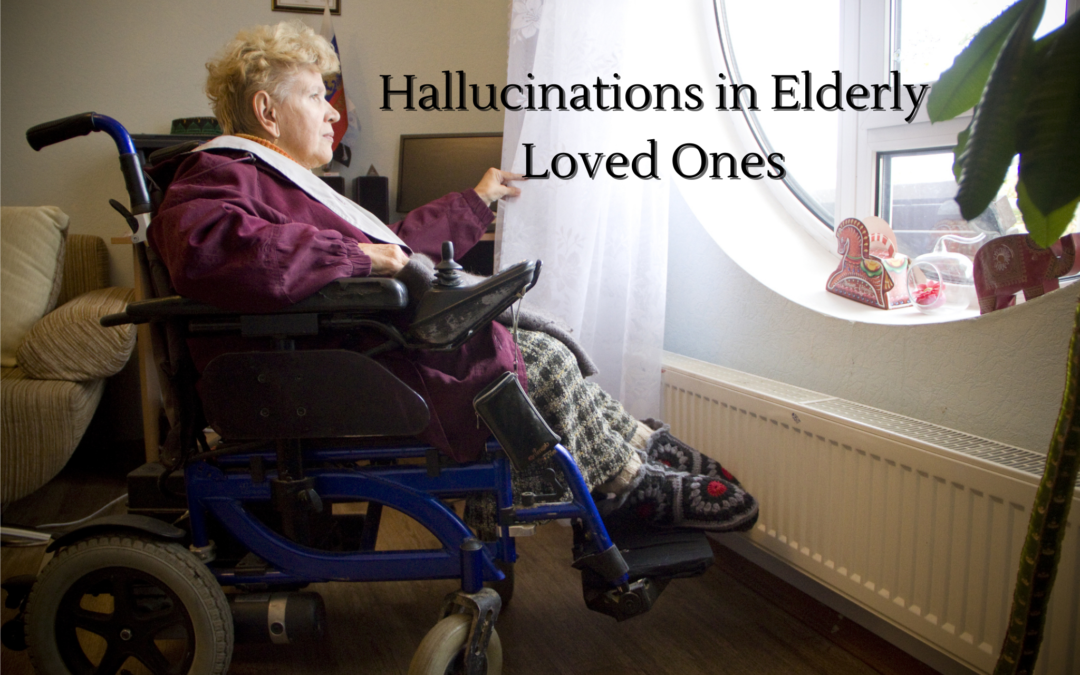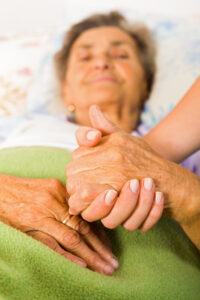Contents
Hallucinations in Elderly Loved Ones
Hallucinations in elderly can be overwhelming or difficult to deal with. There are a number of causes of hallucinations in elderly that have been documented and studied. Some could even be as specific as UTI hallucinations elderly loved ones often experience. Often, sudden hallucinations in the elderly have been known to happen. This article will tackle hallucinations in old age and the best way to deal with these difficulties. Hint, its more love and care.
Hallucinations in Elderly
Hallucinations or “seeing things” is a scary thing to experience. An example would be seeing someone walk past a hallway or your room and then later finding out that you had been alone the whole time. Most people can quickly move on but for others, hallucinations can be debilitating, specially for elderly loved ones.
Changes with Age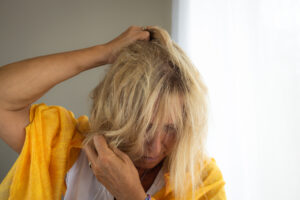
As you age, your brain will have significant changes. Aside from the natural degradation of the body, disabilities can make things worse. In fact, studies have shown that a lot of elderly adults experience hallucinatory episodes. Some popular ones would be would be dementia, Alzheimer, etc. which cause significant harm to your elderly loved ones’ lives.
Types of Hallucinations
Hallucinations can be in a number of forms. Most of the time, hallucinations in elderly involve two or more combinations of senses. Here are the general types of hallucinations in elderly:
Visual Hallucinations
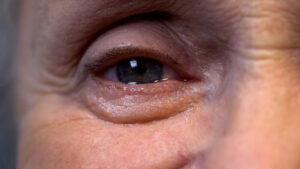
This type of hallucination experience is the most common out of all the hallucinations in old age. Elderly hallucinatory experiences have mostly been about how they see things or often deceased loved ones. Visual hallucinations refer to sight hallucinations where the elderly experiencing this can see things or people that only they see.
Auditory Hallucinations
Auditory hallucinations refer to the experience of hearing sounds that only the one experiencing it can hear. Sudden hallucinations in the elderly with this type of hallucinatory experience can be shocking to them. Usually, the experience involves them experiencing sudden word whispers or even full conversations.
Olfactory Hallucinations
Olfactory means your sense of smell. Hallucinations involving smell are also common. Usually, elderly who experience this smell the fragrance of their friends, family or deceased loved ones. Sometimes, they smell specific places that hold significant memories for them.
Tactile Hallucinations
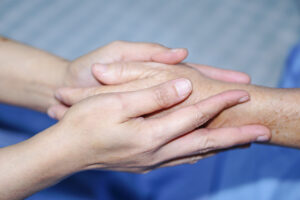
Tactile refers to the sense of touch. Tactile hallucinations are also quite common when it comes to hallucinations in elderly. Usually, they feel someone or something touch their skin at times. The most common experiences would be feeling as if their hair is pushed aside or someone holding their hands.
Causes of Hallucinations in Elderly
Common causes of hallucinations in elderly stem from mental health disabilities. It can even stem from physical difficulties like infections. The food, medications or even alcohol can contribute to hallucinations in elderly. Sometimes, even the lack of activities or stimuli can cause sudden hallucinations in the elderly.
UTI Causes Hallucinations
Studies have shown that UTI or Urinary Tract Infections can cause hallucinations in elderly. UTI hallucinations elderly often experience can be difficult to deal with and cure. The main reason would be that some elderlies are unable to take in so many drugs and antibiotics.
Separate medication is need to combat common symptoms for UTI such as burning sensations or frequent or insistent need to urinate. The medications needed to deal with the delirium that comes with having UTI are different. Though of course, it has been shown through research that solving the main problem of having UTI gets rid of the UTI hallucinations elderly experience.
Hallucinations in Old Age
The most common mental health issue that often causes sudden hallucinations in the elderly would be from dementia. The scariest part of this is that it can pop up anytime without any symptoms during your younger years. Though of course, there are ways to curb or at least keep any signs of dementia in check through medications or the better option of natural remedies.
Sudden Hallucinations in the Elderly
When your elderly loved ones unfortunately experience hallucinations, you need to consider a number of things. The first and most important thing to consider would be how to respond. You need to be careful with how you treat them personally and with what the type of medications or remedies to use. Most importantly, you need to be quick with your decisions since hallucinations can be very devastating or detrimental to a lot of elderly.
Ways to Respond
There are a number of ways that you can respond to elderly loved ones experiencing hallucinations. Whether it be visual or audio hallucinations, your initial approach is very important for the later stages of their care. Making decisions based on carefully considering a number of obvious factors is a good start. Here are some of the ways to respond that I found to be effective:
Patience and Do not Argue
Hallucinations in old age can be tricky to handle. Mostly because a lot of people get flustered with any sudden revelations. Imagine one day you hear someone seemingly talking to themselves. The first reaction most people have would be surprise and even slight fear.
When dealing with hallucinations in elderly, you need to remember to be steadfast and comforting. Being patient in listening and even going so far as going along with the hallucinatory experience can do wonders. Most importantly, do not argue or outright deny what they experience.
Validation can be Very Important
Most of the time, hallucinations can be a pleasant experience for the elderly. The most common example would be about how they are able to see, talk or interact with their deceased partners. In these scenarios, validation from the people around them can help greatly with their mental well-being. Happiness can do wonders with uplifting any elderly’s daily living.
Though validation here does not necessarily mean you pretend to see or interact with their hallucinatory experience. Validation means to make your elderly loved ones feel secure or safe to share about their hallucinatory experience. Make them feel that their feelings and emotions towards the experience are valid and meaningful.
Be Reassuring and Kind
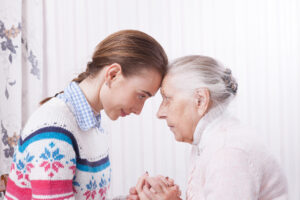
When responding to hallucinations in elderly, you need to be calm and supportive. Again, never outright deny or invalidate their experience. You need to show that you care enough to believe as well.
Though you need to also keep in mind that you need to be firm in setting limits or boundaries. You can’t just keep indulging or going along with the hallucinatory experience. You have to kindly explain any limitations that you might want to put, specially if their hallucinatory experience can potentially physically harm them.
Check and Clear the Environment
Besides setting boundaries and establishing clear limits, you need to also make sure that the environment of your elderly loved ones is safe or secure. Hallucinations in old age can vary from person to person. What you need to make sure is that they are in places where they are unable to hurt themselves through the environment or the things around them.
Decide if You Need to Respond
Last but certainly not the least, you need to decide whether to actually respond to sudden hallucinations in the elderly. Of course, if its UTI hallucinations that elderly experience, then a definite and immediate response is needed. However, if your elderly loved ones experience hallucinations that make them happy or more active, then the best way to respond would be to let them be.
Always Consult Specialists
Aside from the responses I’ve listed, you should always consult with a doctor. Whether the cause be physical or mental issues, doctors have sufficient training and can provide better and professional insight. Hallucinations may unfortunately be just be a symptom of a bigger problem. Getting your elderly loved ones checked will also give you more insight as to a more precise and effective response to what they are feeling.
Love and Care
The most important thing to remember when you respond to hallucinations in elderly is that you treat them with as much care and compassion as you can give. Never forget to always be respectful, patient and understanding when they include you in their experience. Positivity will always be a better solution than outright denial and impatience. Like any other problems, your elderly loved ones need you to listen and communicate than having someone solve things without including them.

